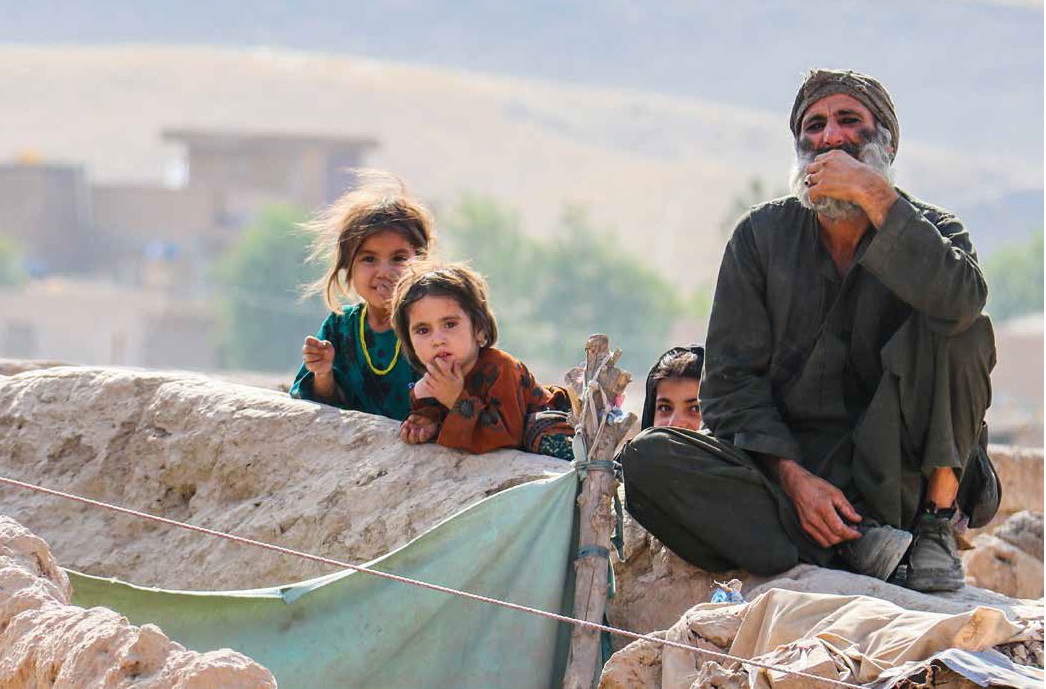
The tumultuous events of the past few months have changed the shape of Afghan society and the future of its people – possibly for decades to come. But what does it mean for the tiny underground church which was already suffering persecution?
For many of us who watched TV during the recent takeover of Afghanistan by the Taliban, the future for the tiny Christian church looked bleak. Rumour and misinformation abounded – sometimes stories of persecution were even taken from other countries and superimposed on the Afghan situation as ‘fact’.
However, we know that even before the resurgence of the terrorist group Christians were underground, there were no church buildings and believers were able to gather only in relatively small numbers.
The former authorities may not have been as vehemently anti-Christian as the Taliban, but believers faced persecution from their Muslim relatives for whom conversion was, and remains, an act of betrayal of the family and their faith.
As the father of a family who had come to faith previously told our partner, Operation Angel, before the Taliban seized power: ‘I got beaten up by my uncle and brother who were angry about my new faith in Jesus. They are still bothering me, and my children who are afraid to go to school at the moment.’ Yet the family remains true: ‘I found the truth, and He (Jesus) found me.’
In a recent conversation, the family sounded sad. ‘We don’t even have bread to eat. Thank you for listening to our heart cry and for standing with us in hard times.’ Now, however, Christians from a Muslim background face increased pressure from both their families and the Taliban.
One woman told our partner: ‘We in our family all follow Jesus. We had Christian books, and my father always had a Bible with him. We are all in hiding.’
Another said: ‘We are afraid; at night homes are being robbed, and people are being killed.’ When asked if it is worse than before, he said, ‘No, it is less than before, but still, we hear of it every day.’
Thankfully, up to the end of October 2021, there were just a handful of reports of Taliban systematically searching for Christians, Christians being taken or being killed or young girls being abducted as ‘brides’.
A number of believers have managed to escape the country; others are desperately trying to escape across the borders while most have had to stay. Many have changed locations at least for a while.
Christians who don’t follow the outward forms of Islam such as praying at the mosque and saying the Shahadah (the Islamic profession of faith) stand out more clearly. So many now live with the fear of being discovered and facing the consequences – including even being martyred.
Christians, like the rest of the population, are also fearful of a potential humanitarian crisis as winter gets under way, widespread hunger unfolds due to a poor harvest and food shortages and the banking system remains paralysed along with a major breakdown in the economy.
The situation is only expected to deteriorate in 2022. Known Christians are likely to be discriminated against when it comes to work and the distribution of resources. They will also likely face pressures against giving their children, especially daughters, a well-rounded education and are likely to be more fearful for the safety of women and young girls, particularly those not yet married.
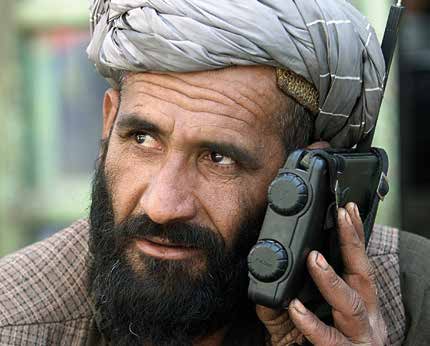
Panayiotis Keenan, the executive director of our partner SAT-7 Pars, which broadcasts programmes via satellite TV into Afghanistan, told us recently: ‘Since the Taliban has taken over, we are receiving many messages from Afghanistan that the persecution is getting harder.’
‘Afghan Christians are contacting us on a daily basis, describing how difficult the situation is. They are hiding and meeting in secret locations. But winter is coming and that will soon become more and more difficult.’
Pakistan and Iran are the natural escape routes for Afghans fleeing their country but the Pakistan border was closed after the Taliban takeover. At the time of writing the UNHCR, the UN refugee agency, reported, however, that Pakistan had started easing the movement of people and goods at the border with Afghanistan, offering some hope to those trying to leave Afghanistan – including Christians.
Although the Church in Afghanistan was never large and many Christians have had to escape the country, some draw a parallel with events in Iran where, under harsh persecution, the church has multiplied.
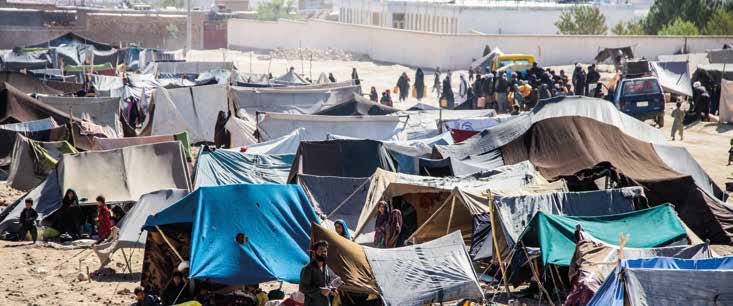
‘We have a sovereign God and we know He has a plan,’ said Panayiotis. ‘To think about it, you would say there was no chance for the church in Afghanistan. But we have seen in the last 10 to 15 years how rapidly Christianity has grown in Iran. If that can happen there, why not in Afghanistan?’
Even before the Taliban takeover, Afghanistan was one of the most hostile countries to be a Christian. Release International CEO Paul Robinson said: ‘The one good thing we can say about this is that the underground church is increasingly well-equipped to weather the storm. The church is invisible and has already learned how to operate in secret.’
Release International has been partnering with a range of Christian organisations to provide broadcasts to encourage and equip believers in Afghanistan, including refugees who have now fled to neighbouring countries. These partners are also producing Christian literature and digital discipleship materials.
Despite oppression, the tiny church is growing. In the year 2000 there were just a few dozen believers; by 2021 there were understood to be several thousand, mostly from the younger generation.
And it is not just numbers that offers hope for the church – but the commitment of its members.
Operation Angel, which broadcasts the Christian message into Afghanistan, reported these comments from one young man who contacted their ministry:
‘Things will get better, and I will serve the Lord more than before. I had to move location after the place where
I stayed was broken into, but I don’t plan to leave Afghanistan. There are many people in the West to talk to about Jesus, but here there are few. I want to stay here and serve God.’
Some weeks later he said, ‘Now, more than before, people are open to hear about Jesus. I have shared with six or seven people recently.’
A Christian woman cried as she shared her story with our partner: ‘Our families found out that I accepted Jesus, and they come every day putting pressure on me to turn back. I follow Jesus, but I don’t even know how to pray!’
Our partner reassured her and taught her the Lord’s prayer. She said, ‘For the last few days I’ve been asking God to show me if I am right or made a mistake. Now I know I chose the right way. God sent you to comfort me. Thank you.’ A week later she said, ‘Thank you for praying for me last week. I had so much peace and joy all week.’
The Afghan church may be facing its toughest challenge yet – but God continues to work in and through it. As our partner concluded: ‘The pressure is increasing but so is the harvest. Jesus is right there building His church.’
Pre-Islam there were pockets of Orthodox Christianity in Afghanistan. Islamic conquests and Tamerlane invasions removed Christianity and for 600 years there was no church. In the mid-20th century a few development workers entered Afghanistan and their numbers grew in the 1960s. By the following decade there was a small number of Afghan believers. The Russian invasion in 1979 created an opportunity to reach Afghans displaced by the war, with many coming to faith. After the fall of the Taliban in 2001 believers could meet together more freely. There is no above-ground church – but there are some thriving groups of believers in the diaspora.
Afghan believers cry out to God
‘I work as an assistant in an office. I never thought it would be so difficult to live in one of the big cities. Where I work, they force me to do the prayers. I did, but I was praying to Jesus and prayed, “God, You know my heart, so please forgive me.”‘
‘The government is trying to help people here, but when I went to register, the leader of our area told me I could not get help because I do not come to the mosque. After my family found out that I am a follower of Jesus, they stopped communicating with me and my wife.’
‘When my son was visiting us from Iran, he shared his faith with his cousin. This created a lot of problems, and so we sent our son back to Iran.’
‘Please pray for me and my family. I became a believer a few years ago, and now I am afraid since my village and many others know I am a follower of Jesus.’
As told to our partner inside Afghanistan.
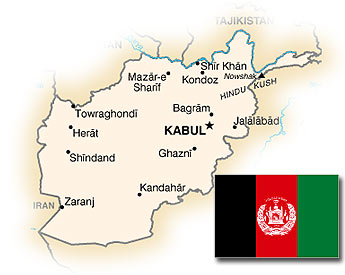
AFGHANISTAN
Population: 37.5 million
Capital: Kabul
Government type: Islamic republic
Religion: 99.7%; other (including Christian) 0.3%.
Sources: World Factbook.
PARTNER PROJECTS
Your support enables these vital ministries to help oppressed Afghan believers:
Operation Angel produces and broadcasts radio and TV programmes into Afghanistan and connects through social media. It also:
- runs telephone Bible classes, especially for isolated believers.
- ministers to Afghan migrants and to Afghan believers outside Afghanistan through conferences and discipleship classes, including online during the Covid lockdowns.
Our partner Operation Matthew produces, distributes and uses inspirational materials, including resources for seekers and believers often located in difficult and isolated situations. These include:
- radio programmes, podcasts and the follow-up of those who respond by phone and text or email.
- audio and video materials, including music, Scripture portions, and segments from radio programmes and video dubbing.
- materials in print and pdf format for seekers and believers.
PRAY
- That our partners will know how to respond to the pain of people responding to their Christian media.
- That all our partners’ media will have a lasting impact and will encourage, strengthen and equip our brothers and sisters. Pray that seekers will come to know Christ for themselves.
- That Christians in Afghanistan and in the diaspora will know the peace of God, whatever their situation.
YOUR OPPORTUNITY TO HELP CHRISTIANS FACING OPPRESSION
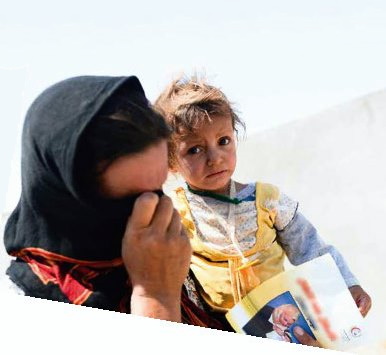
In Afghanistan and around the world, frontline Christians face increasing pressure from both hostile governments and militant groups.
Your gift can bring encouragement, pastoral care and practical support to our precious brothers and sisters in Christ.
Please stand with our global family by making a gift today.
Please call 01689 823491 or give online here.
You can download and read more stories from our latest magazine here.
You can signup to receive your FREE copy of Release magazine here.